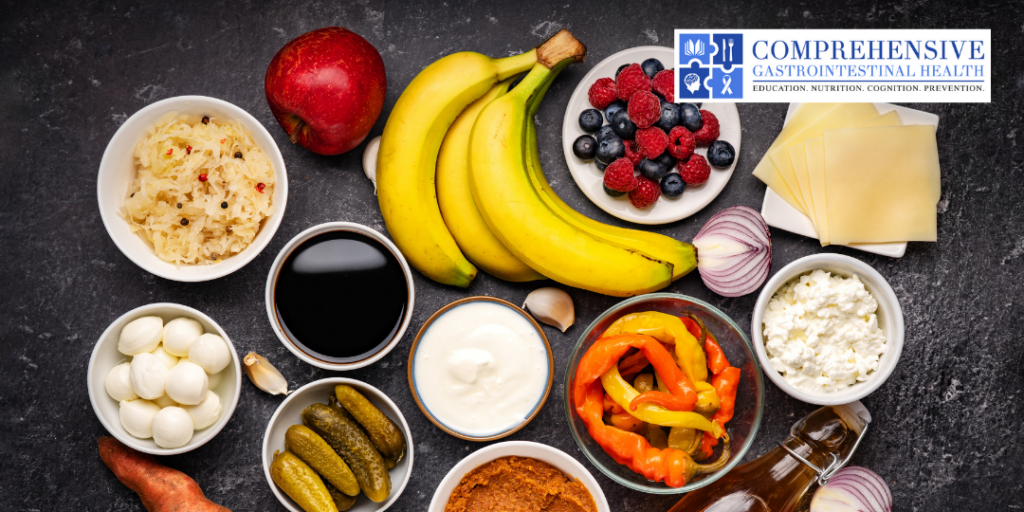Your Diet Can Build a Better Gut Microbiome

Your Diet Can Build a Better Gut Microbiome
by Julie Adams, RD
A recent study out of the University of Groningen in the Netherlands adds to a growing body of evidence supporting the idea that plant-based diets rich in fruits, vegetables, legumes and whole grains, as well as fish and fermented dairy products, foster a gut microbiome that lowers inflammation and protects the intestinal wall. Conversely, diets high in animal products, processed foods, alcohol and sugar are linked to a gut microbiome that erodes gut mucosal protection and promotes inflammation throughout the body.
The study was designed to see how diet affects the gut microbiome – either promoting or protecting against inflammatory conditions. Over 1400 people with inflammatory bowel disease, irritable bowel syndrome, or a normal gut, participated. Each participant’s stool was analyzed for its microbial content and compared with their dietary record noting average daily nutrient intake. Analysis of the data revealed multiple associations between dietary intake and specific bacterial species.
Results
As an observational study, the results cannot establish cause. However, researchers were able to uncover significant dietary patterns that consistently tied groups of bacteria and functions to mucosal protection and anti-inflammatory effects.
It turned out that higher intake of plant-based foods produced superior amounts of short-chain-fatty-acid-producing, beneficial bacteria and lower harmful bacteria. Participants with underlying conditions (IBD or IBS) had equal opportunity to benefit from a plant-based diet as those in the general population. Furthermore, processed, ultra-processed and animal-based foods such as fast food, meats, fried foods and soda were consistently linked to a higher relative volume of opportunistic “bad” bacterial species. Researchers add that “in the absence of plant fibers, these bacteria turn to the mucus layer of the gut to feed off, leading to an erosion of the integrity of the gut.”
Take-home Message
Researchers concluded that “long-term diets enriched in legumes, vegetables, fruits and nuts; a higher intake of plants over animal foods with a preference for low-fat fermented dairy and fish; while avoiding strong alcoholic drinks, processed high-fat meat and soft drinks, have a potential to prevent intestinal inflammatory processes via the gut microbiome.”
Knowledge in Action
- Choose fresh or frozen fruits and vegetables, nuts/seeds, dried or canned beans, items made with whole grains, and seafood most of the time.
- Check to see if packaged/prepared foods have whole ingredients.
- Avoid or limit refined grains such as white bread, white rice, and many cakes, cookies, breakfast cereals, pretzels, and chips.
- Drastically limit or eliminate added sugar in foods like soda, baked goods, and candies.
- Choose low or sodium-free canned goods, prepared meals, soups, and savory snacks.
- Limit red meat and avoid or limit processed meats such as hot dogs, bacon, sausage, and deli meats.
Source: Bolte LA, Vich Vila A, Imhann F, et al Long-term dietary patterns are associated with pro-inflammatory and anti-inflammatory features of the gut microbiome Gut 2021;70:1287-1298.
If you or someone you know would like to learn more about food’s profound effect on health, please contact us today. We have a fantastic team of doctors, registered dietitians, nurse practitioners, and a behavioral health counselor to help you build a better microbiome and improve your overall health. MANY OF THESE SERVICES ARE LIKELY TO BE COVERED BY INSURANCE. Please call us at 224-407-4400 or email info@compgihealth.com.
